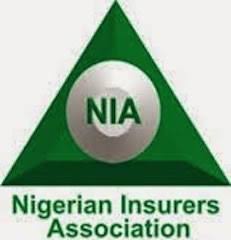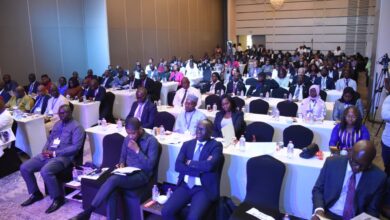Why we need new law to drive insurance industry recapitalization’

Insurance operators have expressed desire to pursue the enactment of a new Act that would help resolve the impasse associated with the suspended recapitalisation exercise, EDET UDOH, reports.
Findings revealed that the operators are not comfortable with the procedure adopted by the National Insurance Commission (NAICOM) to recapitalised the sector.
It was gathered that the umbrella body of Insurers – Nigerian Insurers Association (NIA) has on several fora expressed concern on the definition given to capital by NAICOM in the pursuit of the recapitalisation. The operators, it was learnt had requested for recognition of all fund as admissible capital, a request the commission turned-down, claiming that it contravened the Act presently used to regulate the sector, hence, focused on only paid-up share capital.
Findings revealed that the operators had resolved to stand by a report produed by the International Monetary Fund (IMF) which stipulated the type of recapitalisation required by the sector.
It was gathered that the operators had also requested that the regulator suspend the recapitalisation exercise and give impetus to the passage and signing into law the insurance industry consolidated bill, which, when becomes an Act, will help provide clean slate for such exercise.
According to the source, insurance business should never operate in insolation, as the banking sector and others have aligned with new capital regime, which the bill before the National Assembly was designed to provide.
Determined to achieve their desire, the NIA recently declared its preferred type of recapitalisation by asking the National Assembly to infused in the Insurance Industry consolidated bill Risk based Capital adequacy template. The same policy introduced by NAICOM in 2018 under the Tire-Based Minimum Solvency Capital (TBMSC) which the industry’s operators vehemently jettisoned.
Chairman of the Association Ganiyu Musa, had stated that in adopting Risk based Capital adequacy template, the Association took cognizance of the need to consider insurance risk, market risk, credit risk, and operational risk as well as the need to apply such capital charges on assets and liabilities (all capital resources inclusive).
He hinged the Association’s position on the 2013 IMF Report on the Nigerian Insurance Industry which prescribed the risk based capital model as most suitable for the Nigerian Insurance market.
According to him, the IMF report was duly acknowledged and admitted by the National Insurance Commission (NAICOM) as the right capital framework for the market as it seeks to limit the capital required by operators to the level of risks they can carry.
When the Bill is eventually signed into law in line with this proposal, it will lay to rest, the contentious issue of the definition of capital which has been a major point of the Association’s engagements with the Commission during the ongoing recapitalization exercise.
“We are convinced that risk based capital adequacy template is the best fit for the insurance industry in Nigeria especially given the fact that the 2013 IMF Report has prescribed it and the Commission agreed with it.” he stated.
This will also align the definition of Insurance with the various positions such as IAIS recommendations, ICP 17 on Capital Adequacy; European Union Directives On Minimum Capital Requirement; OSSFI (Canada); APRA (Australia Prudential Regulatory Authority); SAM (Solvency Assessment Management) South Africa; Kenyan Model and Malaysian Model.
The IMF peer review report on the Insurance industry in Nigeria 2013, observed that the Nigeria Insurance Industry was over-capitalized relative to other developing countries and recommended that the regulator should review the excessive capital requirement when adopting a risk based capital framework.
Director-General of the Association, Mrs. Yetunde Ilori, emphasized that risk based capital is the direction to go if the insurance industry is to attract the right investment and increase insurance contribution to the Gross Domestic Product (GDP).
She expressed the hope that that given the fact that the insurance companies are searching for funds to capitalize their operations, adopting this definition will make the insurance industry in Nigeria attractive to investors and save about N77 billion payout as cost of recapitalizing.
But NAICOM said the essence of the recapitalisation is to ensure that operators are well capitalised and are able to pick high ticket risks to a considerable ratio, improve on their technical capabilities, especially in the specialised risk areas such as oil and gas and aviation insurance underwriting while the issue of capital flight is drastically reduced in the post-consolidation era.
While many obstacles have been built around it, the most recent one came from members of the House of Representatives who, last week, resolved that NAICOM should suspend the planned December 31, 2020, mandatory deadline for the first phase of 50 to 60 percent of the minimum paid-up share capital for insurance and reinsurance companies for a minimum of six months from January 2021.
The House believes this will cushion the effect of COVID-19 and other unforeseen circumstances on the industry.
But it has been gathered that the operators themselves are thinking differently from the position of the House as they argue that the suspension would no longer be necessary as most of the companies were already on the verge of realising the 50 percent completion of the recapitalisation exercise and are deep into the project.
Ben Ujoatuonu, CEO/Managing Director,t Universal Insurance, said: “I think with the situation on the ground, everybody in the industry knows that we need the recapitalisation to be able to retain big ticket risks and reduce the rate of sending much of our businesses outside.
“The commission has tried considering the pandemic and went back to do a review and came out with segmentation of the exercise into first and second batches.
“This goes to mean that they recognise the fact that there has been quite a challenge in the year.”
He noted that what the National Assembly was doing in addition to what the commission had done was to look at the economic situation and see how it would be done so that organisations would not be suffocated doing this.
The Managing Director, Law Union & Rock Insurance Plc, Mr Ademayowa Adeduro who was in the delegation that witnessed the public presentation on the Consolidated Insurance Bill at the National Assembly in Abuja recently, said, for him, the suspension was unnecessary as his company had already crossed the 50 percent recapitalisation threshold.
He said: “I was privileged recently to be part of CEOs that witnessed the public hearing of the House Committee on Insurance and Actuarial Services on the new Insurance Bill.
“I can say that honourable members of the committee have the best interest of the country and the insurance industry at heart.
“A prelude to their motion suggested that they reviewed the dateline for the recapitalisation and took a motion for a shift in the December 31 deadline for meeting 50% minimum on the premise that the events that happened after announcement of the recapitalisation such as COVID-19, #EndSARS, and economic recession, had impacted negatively on the capacity of shareholders, investors, and that of the industry to meet the December 31, 2020 deadline.
“If I’m to speak from the point of view of my company alone, I will say the resolution was unnecessary because my company is in excess of the threshold and almost on N10 billion, and I’m also aware that few of the insurance companies have met the 50% threshold.
“However, I want to speak in line with the prayers of our umbrella association, NIA, having reviewed work-done and progress of member companies.
“We have written to NAICOM to grant an extension of time for the 50% phased recapitalisation.
“I’m not aware that the House of Representatives passed a motion for suspension of recapitalisation and the honourable House would not want to contradict itself since the same House had espoused the new Insurance Bill seeking repeal of the 2003 Insurance Act and the promulgation of a new Insurance Act which has the new minimum capital levels as a cardinal proposal in the bill.”





